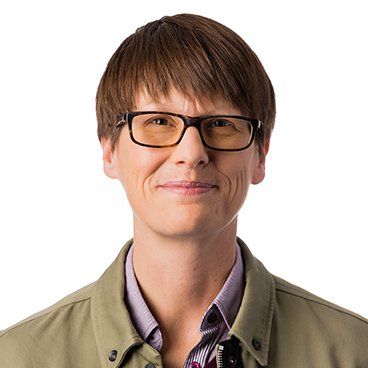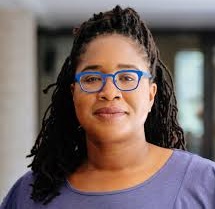Kathy Pham, founder and executive director
Kathy Pham is a computer scientist, product leader and founder who has held roles in product management, software engineering, data science, people operations, and leadership in the private, non-profit, and public sectors. Kathy’s work has spanned Google, IBM, Harris Healthcare, and the federal government at the United States Digital Service at the White House, where she was a founding product and engineering member. Kathy is a Senior Fellow and Adjunct Faculty at the Harvard Kennedy School of Government, where she teaches Product Management and Society, a faculty affiliate at the Center for Research on Computation and Society (CRCS) at the Harvard John A. Paulson School of Engineering and Applied Sciences (SEAS), and Fellow in Residence at Mozilla partnering with Omidyar Network where she co-leads the Responsible Computer Science Challenge. Kathy co-leads the Ethical Tech Group at the Harvard Berkman Klein Center and focuses on ethics and social responsibility with an emphasis on engineering culture, artificial intelligence, and computer science curricula.
She is the founder of the Women in Product Boston, the Cancer Sidekick Foundation, Team Curious, and Unite for Sight southeast. Kathy has served on the advisory boards of the Anita Borg Institute and the “Make the Breast Pump Not Suck” initiative. She also advises startups, conferences, and non-profits on hiring, building teams, and community inclusion. Kathy is a leading expert in the field of tech and ethics. Kathy has been recognized as Nguoi Viet’s 40 under 40, First Lady Michelle Obama’s Guest to the State of the Union Address, a finalist in the StarCraft II After Hours Gaming League, the Georgia Tech Greek Hall of Fame, and worldwide champion at the Imagine Cup Technology Competition. Her work has been featured in Wired, Politico, TechCrunch, NPR, VentureBeat, Nguoi Viet, and the Huffington Post. Kathy holds a B.S. and M.S. in Computer Science from the Georgia Institute of Technology and Supelec in Metz, France.
Founding Team
Mary Gray, principal
Mary L. Gray is a Fellow at Harvard University’s Berkman Klein Center for Internet and Society and Associate Professor in the School of Informatics, Computing, and Engineering with affiliations in Anthropology and Gender Studies at Indiana University. Mary’s research looks at how automation, technology access, material conditions, and everyday uses of media and technologies transform people’s lives. Her books include In Your Face: Stories from the Lives of Queer Youth; the co-edited volume, Queering the Countryside: New Directions in Rural Queer Studies a Choice Academic Title for 2016; and Out in the Country: Youth, Media, and Queer Visibility in Rural America looking at how young people in the rural United States use the Internet to navigate identity, local belonging, and connections to broader queer communities. Out in the Country has won multiple awards from scholarly societies in Anthropology, Media Studies, and Sociology.
Mary is one of the world’s experts in the emerging field of ethics and AI, particularly research at the intersection of computer and social sciences. She sits on the editorial boards of major anthropology, computer science and media studies journals, and her research has been covered by the Harvard Business Review, The Chronicle of Higher Education, The New York Times, Los Angeles Times, The Guardian, Nature, The Economist, and Forbes. She served on the Executive Board of the American Anthropological Association from 2008 until 2010 and chaired the Association’s 113th Annual Meeting. Mary sits on the Executive Advisory Boards of the Heinz Endowment Keystone Research Center on the Future of Work, Public Responsibility in Medicine and Research (PRIM&R), Stanford University’s “One-Hundred-Year Study on Artificial Intelligence” (AI100), and the Strada Institute for the Future of Work.
Ben Green, principal
Ben Green is a PhD Candidate in Applied Math at the Harvard School of Engineering and Applied Sciences and an Affiliate at the Berkman Klein Center for Internet and Society at Harvard. He studies the implementation and impacts of data science in local governments, with a focus on “smart cities” and the criminal justice system. Analyzing the intersections of data science with law, policy, and social science, Ben focuses on the social justice and policy implications of data-driven algorithms deployed by governments. His forthcoming book, The Smart Enough City: Putting Technology in Its Place to Reclaim Our Urban Future, will be published in April 2019 with MIT Press (Amazon link).
Ben’s research draws on his extensive experience working with data and technology in municipal government. He most recently spent a year working for the Citywide Analytics Team in the City of Boston, where he developed analytics to improve public safety operations and civic engagement strategies for the City’s new open data program. Ben previously worked as a Fellow at the Eric and Wendy Schmidt Data Science for Social Good Summer Fellowship, and partnered with the City of Memphis, TN using machine learning to identify blighted homes. He also worked for a year at the New Haven Department of Transportation, Traffic, and Parking, where he managed the deployment of new parking meter payment technology. Ben completed his undergraduate degree in Mathematics & Physics at Yale College. His graduate work has been funded by the NSF Graduate Research Fellowship and the Herbert Winokur SEAS Graduate Fellowship.
LIly hu, principal
Lily Hu is a PhD candidate in Applied Mathematics at Harvard University and a Fellow at the Berkman Klein Center for Internet and Society, where she studies algorithmic fairness and philosophy of artificial intelligence and machine learning. Broadly, her academic interests include machine learning in social and economic environments, distributive justice, philosophy of science and social science, and thinking beyond utilitarianism. Her current time is divided between computer science-related research, where she studies machine learning in social settings, and philosophy work, where she considers the epistemological underpinnings of machine learning and the normative force of predictions issued by computational tools. Lily received an A.B. in Mathematics from Harvard College in 2015 and spent a year teaching English and Spanish history in Madrid on a Fulbright Fellowship. Her current work is supported by an NSF Graduate Research Fellowship.
Jenny Korn, principal
Jenny Korn is a feminist activist of color for social justice and scholar of race and gender in mass media and online communication. Currently, Korn is a Fellow and the Founder and Coordinator of the Race and Media Working Group at the Berkman Klein Center for Internet and Society at Harvard University. An award-winning author with numerous publications, she has given 100+ talks as invited keynote presentations, university guest lectures, interactive community education, and refereed conference presentations. As a public scholar, Korn has been quoted in interviews with CNN, Colorlines, Fox News, National Public Radio (NPR), South by Southwest (SXSW), U.S. News and World Report, and more. Korn examines identity and representation through online and in-person discourses, focusing on how popular concepts of race and gender are influenced by digital interactions, political protest, and institutional kyriarchy.
Momin Malik, principal
Momin M. Malik is a multidisciplinary researcher who brings statistical modeling to bear on critical, reflexive questions with and about large-scale digital trace data. He is broadly concerned with issues of algorithmic power and control, and of validity and rigor in computational social science. In addition to empirical work modeling social media and mobile phone sensor data, he works on how to understand statistics, machine learning, and data science from critical and constructivist perspectives, on ethical and policy implications of predictive modeling, and on understanding and communicating foundational problems in statistical models of social networks. He has an undergraduate degree in history of science from Harvard, a master's from the Oxford Internet Institute, and a PhD from Carnegie Mellon University's School of Computer Science.
Sabelo Mhlambi, principal
Sabelo is a computer scientist and researcher whose work focuses on the ethical implications of technology in the developing world, particularly in Sub-Saharan Africa, along with the creation of tools to make Artificial Intelligence more accessible and inclusive to underrepresented communities. His research centers on examining the risks and opportunities of AI in the developing world, and in the use of indigenous ethical models as a framework for creating a more humane and equitable internet. His current technical projects include the creation of Natural Language Processing models for African languages, alternative design of web-platforms for decentralizing data and an open-source library for offline networks. He conducts research on Ethics & Technology and extend his work on Artificial Intelligence for the Developing World.
Jasmine mcNEALY, principal
Jasmine McNealy is a scholar of information, technology, community, and culture with a view toward influencing law and policy. She is currently an assistant professor in the department of telecommunication at the University of Florida’s College of Journalism and Communications. She is a fellow at the Berkman Klein Center Fellow at Harvard University and a Fellow at the Data & Society Research Institute. She is a (non-resident) Fellow at the Stanford University Digital Civil Society Lab and a visiting researcher with Spotify Research where she works with the Algo Bias squad. She earned a PhD in mass communication and a JD at the University of Florida, and a BS in both Journalism and Afro-American Studies at the University of Wisconsin.
Stephanie Nguyen, principal
Stephanie Nguyen is a product designer, researcher, and graduate fellow at Harvard Kennedy School, leading projects on data privacy in healthcare with NIH's million person genome project (All of Us) and Johns Hopkins’ Precision Medicine team. She has been working with Harvard Shorenstein Center’s platform accountability team to convene and prototype privacy principles to legislation by incorporating voices from civil society to engineers and policymakers. She was lead designer on projects at US Digital Service at the Obama White House, worked with Google X’s Project Loon to increase internet accessibility to rural and remote communities, and manages her own independent design + research consultancy working with domestic and international clients (World Bank, Mapbox, Time’s Up, California HHS). In 2013, Stephanie cofounded DCFemTech, a grassroots women in tech alliance that is still actively involved in encouraging tech education and mentorship for women and minorities for thousands of women in the DC/Metro area. @stephtngu
Boaz Sender, principal
Boaz manages the web platform consulting company Bocoup where he works to make the web more predictable and inclusive through technology standards development and engineering. At the Berkman Klein Center, Boaz is active in the ethics working group, where he is working on a critique of the values embedded in “open source” production. Between 2016 and 2017, Boaz ran a contemporary art gallery with a focus on tech criticism. During this time he curated works from artists exploring the role and impact of technology on society. From 2011 until 2017, Boaz was an invited expert to the W3C where he started the Games community group, outlining a roadmap for “open web games”, and contributed to the web-platform-tests initiative. During this same period, Boaz also contributed to the jQuery, Backbone, and Grunt projects and helped start the jQuery Foundation where he served as a board member until its relaunch as the JS Foundation. Prior to Bocoup, Boaz worked as a front-end developer for a dot-com where he built early client side web applications. Boaz studied Liberal Arts at Bennington College from 2003 to 2005. His software production education came from working in open source communities, writing documentation, and working as a web developer.
Salome Viljoen, principal
Salome is a Fellow in the Privacy Initiatives and Berklett Cybersecurity Projects at the Berkman Klein Center for Internet and Society. Salome’s research focuses on the intersection between law, technology and inequality. She is particularly interested in how the law governing technology facilitates the concentration of private power, and the distributive impacts of privacy and cybersecurity governance regimes. Before coming to the Berkman Center, Salome was an associate at Fenwick and West, LLP, where she worked with technology company clients on a broad variety of matters. She has a JD from Harvard Law School, an MsC from the London School of Economics, and a BA in Political Economy from Georgetown University.











